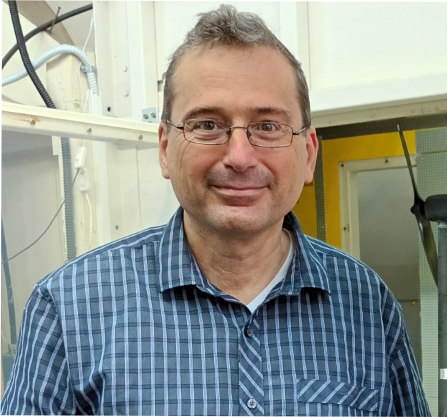Room Fluid Dynamics, Airborne Disease Transmission, Risk and Mitigation by Dr. Eldad Avital
Room Fluid Dynamics, Airborne Disease Transmission, Risk and Mitigation by Dr. Eldad Avital, Reader in Fluids and Acoustics, Queen Mary University of London (UK)
Brief Biography: Dr Avital is a Reader specialising in fluid and particle dynamics, and fluids-structure interaction for renewables, water systems and biofluids. His group uses high fidelity simulations coupled with reduced order modelling and experimental validation. His biofluid dynamics research includes the study of airborne disease transmission, quantifying infection risk and developing air purification strategies. This research has been supported by the Royal Academy of Engineering, UK Health Safety Agency and industry. Dr Avital is an aero-mechanical engineer by profession and is a fellow of the Royal Aeronautical Society. He is an associate editor in the journals Scientific Reports, Fluids and Frontiers in Energy Research.
Talk Abstract: The recent COVID-19 pandemic underscored the critical importance of understanding the role of room fluid dynamics in the transmission of airborne diseases and how this knowledge can inform the development of effective air purification strategies to block transmission pathways. High-fidelity computational fluid and particle dynamics simulations, coupled with Schlieren flow visualisations, are employed to demonstrate the influence of thermal plumes emitted by occupants and their interaction with the ceiling in spreading airborne pathogens. A novel approach for estimating airborne disease infection risk is introduced, which avoids the inherent assumptions of well-mixed air and quantas in the Wells-Riley model, making it more suitable for high-fidelity simulations. Generic indoor environments, including a small office and a midsize classroom, are analysed to examine fluid dynamics, the impact of ventilation, and the effectiveness of upper-room UVC air purification. The findings reveal that the efficiency of upper-room UVC air purification can be significantly enhanced with the use of fans, although caution is necessary when combining fans with ventilation, as they may not always work in harmony. Finally, a brief analysis of thermal comfort relevant to UK summers is presented.
Moderator: Dr. C Anghel, Dept of Mechanical and Industrial Engg. Technology (DFC)
Time: 10:00-11:00
Date: 09 July 2025
Disclaimer: The University of Johannesburg encourages academic debate and discussion that are conducted in a manner that upholds respectful interaction, safety of all involved, and freedom of association as enshrined in the law, the Constitution, and within the boundaries of the University policies. The views expressed during events are expressed in a personal capacity and do not necessarily reflect the views of the University of Johannesburg.

